How do you solve a problem like Gaza?
As the guns fall silent in Gaza, if only for a few days, the world has a moment to catch its breath and turn its mind to a question no one can answer: who will rule Gaza when Hamas does not?
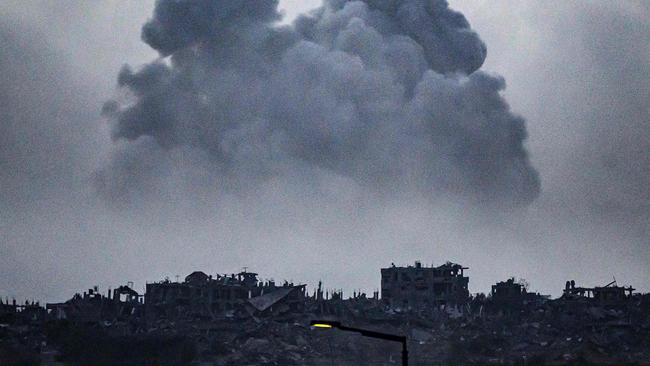
It is a question that did not arise until Hamas’s massacre of Israelis on October 7 and it is one on which the international community finds itself hopelessly divided. Yet an answer increasingly is urgent as Israel progressively dismantles the rule of Hamas.
It is no surprise that no country or entity is pushing hard for the right to succeed Hamas as a transitory government in Gaza once this conflict is over.
They will inherit a territory in which entire streets and neighbourhoods will have to be rebuilt from the ground up. Everything from basic housing, water, electricity and sewerage must be re-created. A working economy will need to arise from the ashes, giving 2.3 million people, many of them displaced from their homes, some hope of a future.
And what of those people? Will the nightmare of this war fill them with generational hate for Israel, creating a new era of jihadists, or will there be a relief that the yoke of Hamas is gone, finally clearing the path for eventual self-determination and a two-state solution?
And what about Israel, which wants to offload Gaza after the fighting is over but must keep its security claws gripped around the territory to prevent a repeat of October 7? How does a new governing entity in Gaza balance a promise for Gazans of autonomy and self-determination with the reality that Israel will be watching and ready to swoop at any sign of a revival of extremism in the enclave?
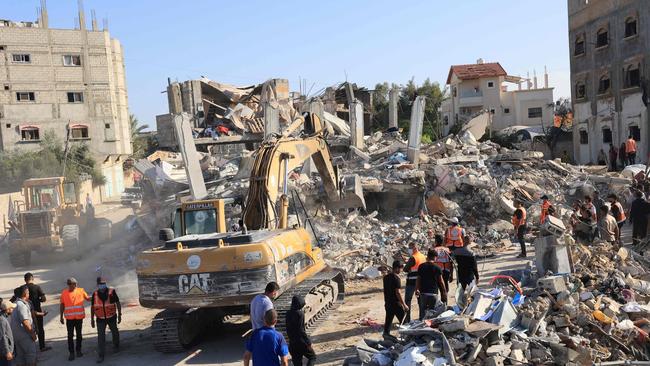
These are some of the many questions the world does not have time to consider properly because this conflict was imposed so suddenly by Hamas’s actions on October 7. As a result, the main players that ultimately will decide the fate of Gaza – Israel, the US, Europe, Palestinians, Arab nations and the UN – hurriedly are throwing out half-formed ideas about Gaza’s post-war future that raise as many questions as they answer.
The options loosely mooted so far include a lengthy occupation by Israel; the takeover of Gaza by the Palestinian Authority, the governing authority in the West Bank; a UN peacekeeping force; and a peacekeeping force provided by Arab nations.
Any of these options would be considered interim measures ahead of the broader aim of a two-state solution involving Palestinians and Israelis, the achievement of which has rarely looked less likely.
But events this week illustrate just how difficult it will be to reach any international consensus about who should rule Gaza, even temporarily, after Hamas is disarmed.
Early in the week, Joe Biden reinforced the US belief that the best option for a post-war Gaza is that it be ruled by a “revitalised” Palestinian Authority.
“As we strive for peace, Gaza and the West Bank should be reunited under a single governance structure, ultimately under a revitalised PA, as we all work toward a two-state solution,” Biden wrote in an opinion piece in The Washington Post.
But just days later the Palestinian Authority’s foreign ministry published the absurd and offensive claim that Israel, not Hamas, was responsible for the massacre of more than 300 young Israelis at the Supernova music festival by firing on them from Israeli helicopters.
The statement, described by Israeli Prime Minister Benjamin Netanyahu as “utterly preposterous”, caused an outcry and ultimately was retracted. But it showed just how inadequate the Palestinian Authority, in its current form, would be to become a governing authority of Gaza.
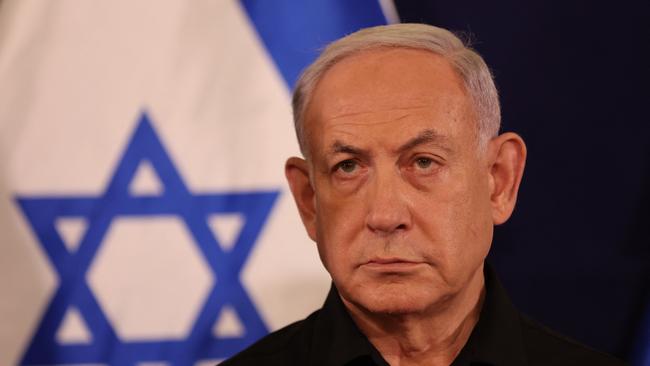
The US President’s support for a “revitalised” Palestinian Authority to govern Gaza reflects the fact, in the eyes of the US, it is the best of a series of bad options.
The Palestinian Authority has ruled Gaza before, although it was far from popular.
Gaza was under Egyptian control until Israel occupied it following the 1967 Six-Day War and in 1994 it came under the control of the new Palestinian Authority, which was created as a result of the Oslo Accords.
In 2005 Israel withdrew its armed forces and settlements from Gaza, but in 2006 Hamas won a surprise election victory over the Palestinian Authority and, in a violent struggle, ejected it from Gaza, where the terror group has ruled ever since without holding elections.
This has left the Palestinian Authority to administer only those parts of the West Bank that are not controlled by Israel. But the Palestinian Authority has proved to be an undemocratic and corrupt organisation that has existed uneasily alongside Israel’s ongoing military and civil control over large parts of the West Bank.
Its 88-year-old President, Mahmoud Abbas, was elected for a four-year term in 2005 but has remained in power without holding any further elections. He leads a sclerotic and incompetent administration that is distrusted by the Israeli government for being anti-Israel and disliked by Palestinians who see the PA as being too pro-Israel.
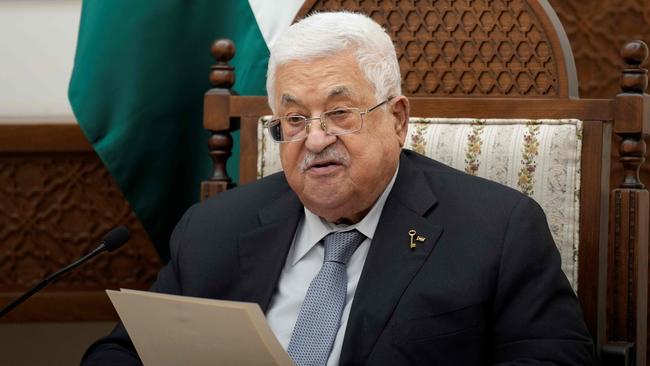
A recent poll found Abbas’s approval rating in the West Bank was just 26 per cent, with most Palestinians believing the PA’s security forces were too closely aligned with the Israeli police and military. But the Israeli government considers Abbas, a Holocaust denier, is too anti-Israel and says he runs an administration and an education system in the West Bank that is hostile to Israel and encourages new generations of militants.
Israel points to the fact Abbas has refused to criticise Hamas for its murder of 1200 Israelis on October 7. After the massacre Abbas initially was quoted as saying Hamas’s actions “do not represent” the Palestinian people but he then removed the reference to Hamas in official statements and has not criticised the group since. Instead, he has accused Israel of committing war crimes in Gaza.
Netanyahu is adamant that the Palestinian Authority in its current form would be the wrong choice for Gaza, not least because he says Israel cannot tolerate another ruler of Gaza that is innately hostile to Israel.
He points out that when the Palestinian Authority previously ruled Gaza it neither demilitarised nor deradicalised the enclave. To reinstate it in Gaza would be to fall into “the same rabbit hole”, he says.
“We have to give Gaza a better future, let’s not bring it to a failed past,” Netanyahu says. “The PA in its current form is not capable of receiving responsibility for Gaza. My goal is that the day after we destroy Hamas, any future civil administration in Gaza does not deny the massacre, does not educate its children to become terrorists, does not pay for terrorists and does not tell its children that their ultimate goal in life is to see the destruction and dissolution of the state of Israel. That’s not acceptable and that is not the way to achieve peace.”
Abbas also has placed his own preconditions on any takeover of Gaza, saying the Palestinian Authority would consider it only as part of a “comprehensive political solution” for the decades-old Israel-Palestinian conflict encompassing the West Bank, east Jerusalem and the Gaza Strip.
The US and Israel know Abbas is not the person to lead the Palestinian Authority back into Gaza, and when Biden uses the term a “revitalised” PA this appears to be code for an organisation with new leadership.
The US President’s Deputy National Security Adviser, Jonathan Finer, says: “Our view is the PA is the only official institutional representative of the Palestinian people in the West Bank, that it will have to be a part of the way forward when it comes to governance both in Gaza and the West Bank.” But he says the US will need to help the authority enhance “their legitimacy” and “capacity to be able to play this important role”, without explaining how this could be achieved.
The EU also backs the US idea of a Palestinian-run government in Gaza but doubts this will be the Palestinian Authority as it currently exists.
“We believe that a Palestinian authority must return to Gaza,” says the EU’s top diplomat, Josep Borrell, who adds: “One Palestinian authority, not the Palestinian Authority.”
Whatever happens in this war as Israel prepares to expand its ground offensive into southern Gaza, it seems likely that Israeli forces will stay in the territory long after the government decides that Hamas is finished as a military force.
Netanyahu raised eyebrows when he said this month that Israel would take “overall security responsibility” in Gaza “for an indefinite period” because “we’ve seen what happens when we don’t have it”.
The statement at face value appeared to contradict the US position after Biden declared it would be “a big mistake” for Israel to “occupy Gaza and maintain Gaza”.
Since then, Netanyahu has clarified his position, saying he has no intention of trying to run Gaza but that Israel needs the ability to re-enter Gaza as necessary to “kill the killers” and “prevent the re-emergence of a Hamas-like entity”.
He says Israel will need to find a “civilian government” to govern Gaza. “We don’t seek to govern Gaza, we don’t seek to occupy it,” Netanyahu says. “But we seek to give it and us a better future … and that requires defeating Hamas.”
But Israel’s understandable requirement that it be able to re-enter Gaza to knock out any perceived re-emergence of terror threats complicates a political solution. Any Palestinian or Arab-led authority will be reluctant to assume control of Gaza if Israeli forces can enter and conduct operations inside the territory at will.
The US is examining whether Arab states could contribute to a temporary post-war peacekeeping force in Gaza, ahead of the arrival of the Palestinian Authority or another governing authority.
But so far Arab states – which have been quick to criticise Israel’s conduct in Gaza during its war on Hamas – have not shown much interest in helping the people of Gaza after the conflict is over.
“Let me be very clear,” Jordan’s Foreign Minister, Ayman Safadi, says. “There will be no Arab troops going into Gaza. None. We’re not going to be seen as the enemy.”
Arab nations do not want to be seen to share the policing of Gaza with Israel and fear they will be saddled with the thankless task of rebuilding the enclave.
If Arab nations will not participate, then the UN may need to examine a multinational temporary peacekeeping force for Gaza. But the formation of such a force would be politically difficult given the UN’s historic bias against Israel.
The US says whatever happens in Gaza, it must involve no reduction in territory, no forced expulsion of Palestinians from Gaza and no ongoing siege or blockade.
But as things stand, Gaza is an orphan. No one wants to inherit a problem without a solution. Yet someone, somewhere, will have to step up to replace anarchy with order in a post-Hamas Gaza. The question is: who?


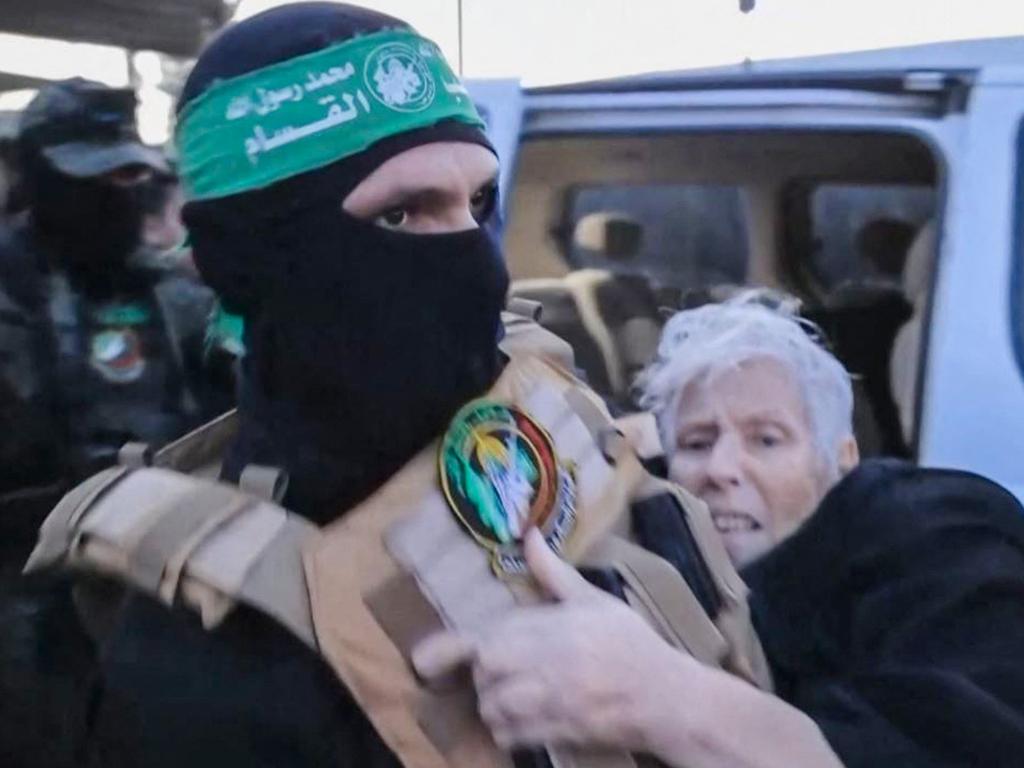


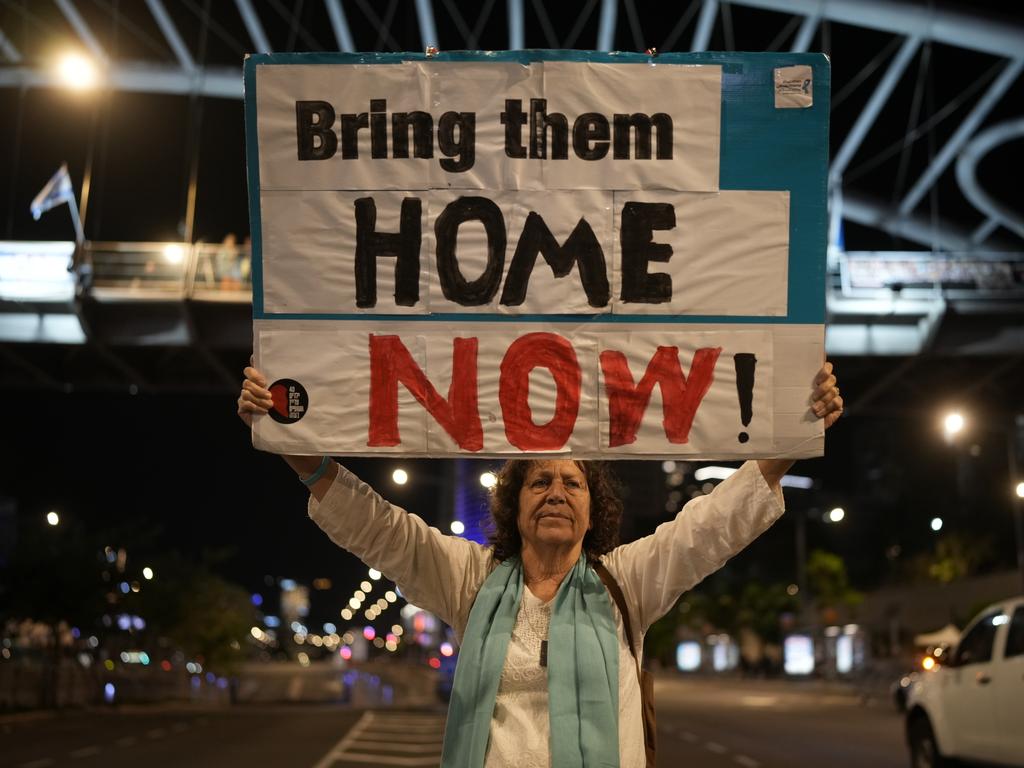
As the guns fall silent in Gaza, if only for a few days, the world has a moment to catch its breath and turn its mind to a question no one can answer: who will rule Gaza when Hamas does not?